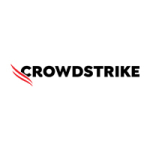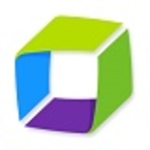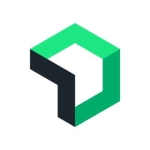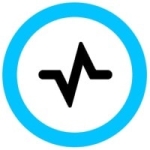What is our primary use case?
I am the branch chief. I use Splunk Enterprise Security depending on how swamped the team is. I use it for anything from basic searches to DDoS attacks, which is a big thing right now. So, DDoS attacks and phishing emails are a lot of what I am using it for.
How has it helped my organization?
We had FireEye before and then we went to CrowdStrike. Splunk has definitely helped to have everything into the tool. It is a lot easier to complete the tickets. It saves, on average, a couple of hours a day. We just go to Splunk and then provide data and work with different people on the tickets, so it saves hours each day. We have been able to allocate these hours to other projects or things that are more of a priority. We are able to do different projects that were on the back burner. We can put those hours towards other things.
Splunk has improved our organization’s business resilience. We are able to give leadership updates through dashboards versus the actual metadata. It is easier for them to understand and provide leadership.
Splunk’s ability to predict, identify, and solve problems in real-time is very good. It is proven. Every couple of weeks, it catches some of the things that our SOC team did not catch and provides alerts, so its real-time capabilities are very good.
Our team has overall benefited from Splunk. We had FireEye before, which was not that good. We are able to benefit from Splunk not only in terms of instant response. We also have other teams doing vulnerability management using the Prisma systems. It is important that Splunk provides end-to-end visibility into our native environment. We use it for Prisma and instant response. Without Splunk, we would not be able to do some of the things that we need to do unless we went to individual tools, and we do not have the resources for that.
What is most valuable?
Exporting is a good feature. It helps me out when I have to do reports. I do a lot of exporting and crunching of the numbers. Dashboards are okay for showing to the leadership, but for doing statistics and updating tickets, the export feature is very beneficial for me.
They offer training. That is a big part of it. If you do not understand the tool, they are able to provide everything that you need, which helps the business. When you have learned a tool, you are able to speed up the process meantime, so you are not wasting a lot of man-hours trying to figure things out.
What needs improvement?
I do not have any areas that can be improved. It works as intended for us, and we are getting everything that we need out of it. If anything, its initial setup can be improved a bit.
In terms of additional features, I am still learning SOAR and everything else, so I do not have any feature requirements at this time, but as we do these SOAR operations, there might be some additional features that we will need.
For how long have I used the solution?
I have been using Splunk Enterprise Security since 2016.
What do I think about the stability of the solution?
It is very good as long as you have the scope of how many servers, processors, and other things you need. There was a learning curve of making sure our servers were beefy enough to handle the data. We had four terabytes of data coming in every day. We were maxing out our systems a little bit, so we beefed that up, and we have had no issues since.
What do I think about the scalability of the solution?
Its scalability is easy. On-prem was very easy, and on the cloud, you have to learn and adapt a little bit, but scalability is perfect.
How are customer service and support?
I only reached out to our Splunk contacts, but my team reached out to Splunk's support team. I have not had any issues where they told me that they did not get the support they needed. They might take time to figure out what the issue is, but overall, I would rate their support a ten out of ten.
How would you rate customer service and support?
Which solution did I use previously and why did I switch?
We used FireEye, which was our primary one, and then we had CrowdStrike. Splunk has definitely been wonderful for us. The biggest reason for switching was integration. It is very easy to get all the tools fed into Splunk. They also had a cloud version, which was another reason. We are doing a hybrid setup, so cost savings was also a big factor.
How was the initial setup?
I was involved in its deployment. I am the system owner of it. I am in charge of it, so I oversaw the project deployment. There is a learning curve with the hybrid setup with the cloud and on-prem, but overall, I am pretty satisfied with it.
We have an on-prem and a cloud environment depending on the platforms we are using in the system, so we have both environments. The challenging part was getting everything set up and fed into Splunk, but once it is set up, there is no difference in using it on-prem or on the cloud. We do not notice any real difference in it.
The initial setup could be improved a little bit. It depends on your local team, firewalls, and other things like that, so there was a learning curve for the teams to learn how to set it up. That part could be improved, but once you go through it, it is not an issue.
What about the implementation team?
We had the Splunk team, and they did wherever they needed to get everything deployed. Our experience with them was good. We have worked with Splunk for years now. Their support has been very beneficial. If I have a question, they jump right on and let me know. They walk me through it and give me updates, so I am pretty happy with Splunk.
What was our ROI?
We have seen an ROI in terms of the mean time to resolution and man-hours. We are able to allocate those hours to other things. We have not got there yet in terms of the upfront costs, but we will get there over time.
When it comes to the time to value, we are getting there. We have not got there yet, but over time, we will get to the time to value.
What's my experience with pricing, setup cost, and licensing?
Its price is fair. Like with anything else, if you go into the cloud, different providers cost more, and you are able to throttle back or throttle up. The cost is comparable with anything else.
Which other solutions did I evaluate?
We evaluated other options. We had to evaluate the pros and cons in terms of the cost and the capabilities of each tool. A lot of that went into the proof of concept. We did our due diligence and determined that Splunk was the best fit for us.
What other advice do I have?
I would rate Splunk Enterprise Security a ten out of ten. It gives us everything we need, and its capabilities keep on improving, so it is getting better.
Disclosure: My company does not have a business relationship with this vendor other than being a customer.




















